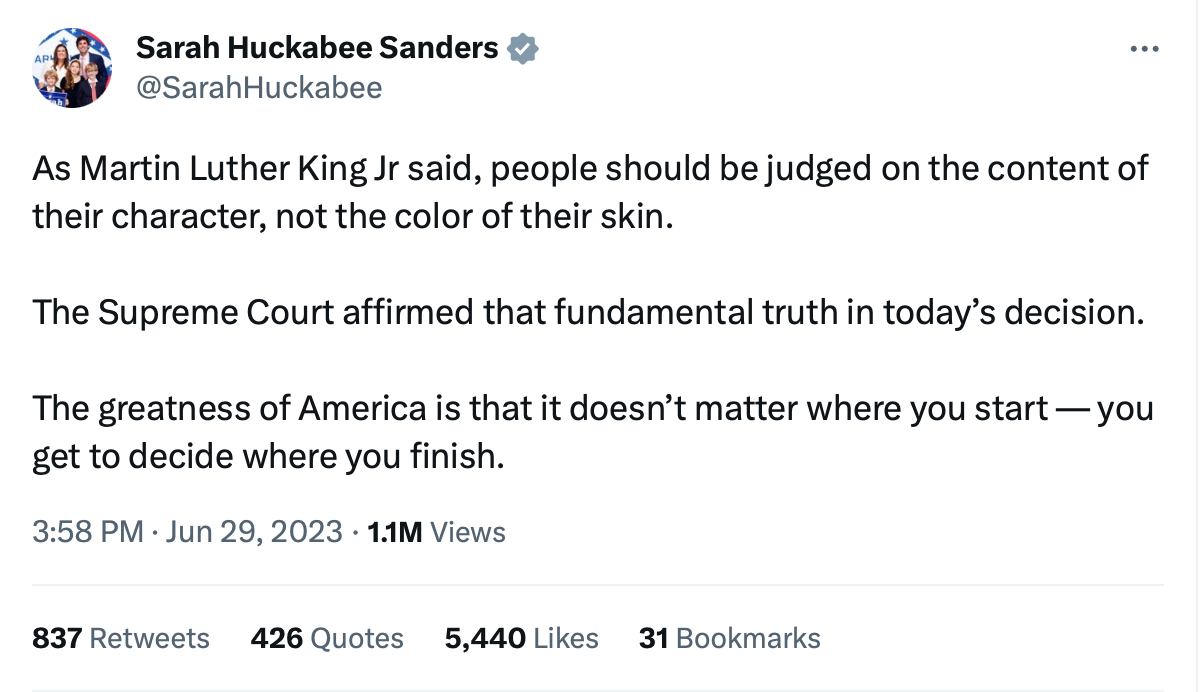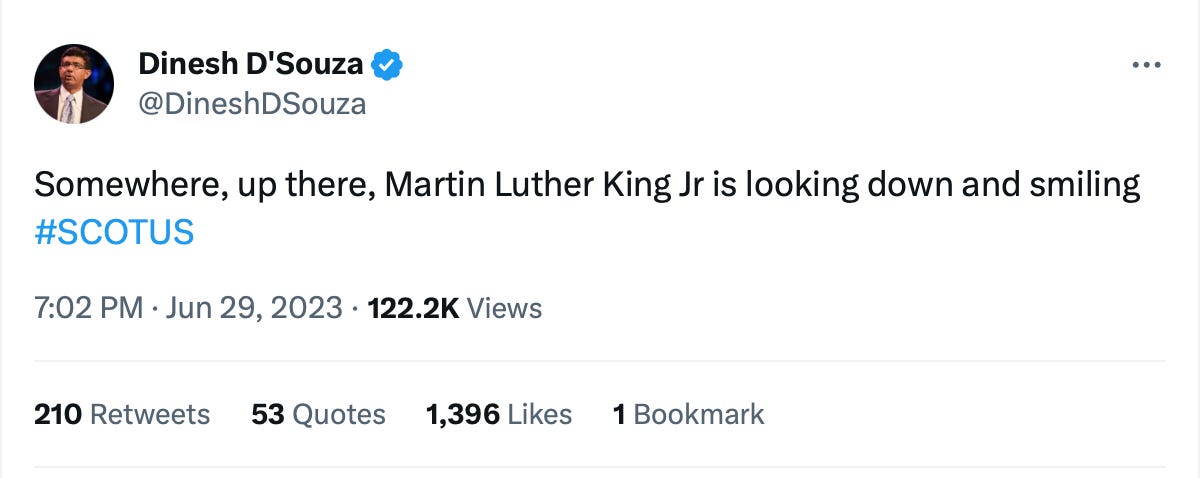After yesterday’s Supreme Court ruling striking down affirmative action programs, conservative politicians and pundits predictably resorted to trotting out The Only Martin Luther King Jr Quote They Know.™
And as you might expect, the trollier corners of the right were especially trolly:
All right, let’s dig in.
Despite the constant insistence from conservatives that King would have seen affirmative action programs as a violation of his vision and would have opposed them, there’s the small problem that King was actually still alive when affirmative action began and he was repeatedly, clearly, constantly, vocally in favor of it.
He talked about it at great length in his 1964 book Why We Can’t Wait:
“Among the many vital jobs to be done, the nation must not only radically readjust its attitude toward the Negro in the compelling present, but must incorporate in its planning some compensatory consideration for the handicaps he has inherited from the past. It is impossible to create a formula for the future which does not take into account that our society has been doing something special against the Negro for hundreds of years. How can he be absorbed into the mainstream of American life if we do not do something special for him now, in order to balance the equation and equip him to compete on a just an equal basis?
“Whenever the issue of compensatory or preferential treatment for the Negro is raised, some of our friends recoil in horror. The Negro should be granted equality, they agree; but he should ask nothing more. On the surface, this appears reasonable, but it is not realistic. For it is obvious that if a man is entered at the starting line in a race three hundred years after another man, the first would have to perform some impossible feat in order to catch up with his fellow runner.”
The book continues on the subject, with King relating a conversation he had with Prime Minister Nehru about India’s programs of preferential treatment for former “untouchables,” making specific reference to the fact that “if two applicants compete for entrance into a college or university, one of the applicants being an untouchable and the other of high caste, the school is required to accept the untouchable.”
This was wholly sound, King insisted in 1964, suggesting America should follow suit.
And when LBJ did introduce affirmative action a year later — borrowing the “race” metaphor that King used in his book — King and other civil rights leaders applauded.
In a 1965 Playboy interview, Alex Haley asked King “Do you feel it's fair to request a multi-billion dollar program of preferential treatment for the Negro, or any other minority?"
King responded: "I do indeed. Within common law, we have ample precedents for special compensatory programs,” drawing a comparison to the ways in which WWII veterans were singled out for special treatment with the GI Bill (which we should note largely neglected black veterans). “There was no appreciable resentment of the preferential treatment being given to the special group."
In his final book Where Do We Go From Here?, published in 1968, King said once more: “A society that has done something special against the Negro for hundreds of years must now do something special for the Negro.”
Conservatives are certainly free to disagree with King’s clear stance on affirmative action or to argue his views are no longer relevant. But pretending he would be happy with this decision is a gross distortion of the record and an insult to King’s legacy.





